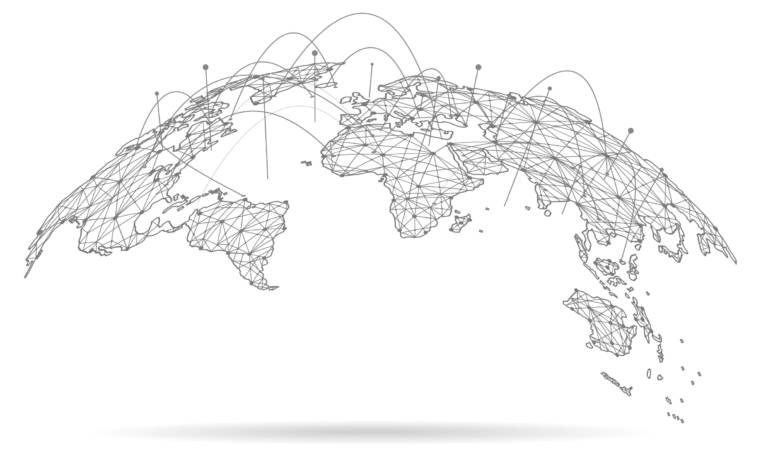Letters Rogatory Explained: Facilitating Legal Participation Between Countries

Interpretation of Letters Rogatory
Letters rogatory are official requests made by a court in one jurisdiction to a court in another jurisdiction, seeking support in obtaining evidence or testament for a legal proceeding. This procedural system is vital in the context of worldwide law, where legal systems may vary, and cross-border cooperation is needed. Letters rogatory promote the gathering of information that may be important for settling situations, particularly in circumstances entailing intricate transnational problems.
Generally, these demands occur in civil, criminal, or management issues where an event needs proof that lies outside the territory of the asking for court. The letters act as a way to make certain that the principles of due process are maintained, making it possible for courts to gain access to proof that might otherwise remain hard to reach due to geographical or legal obstacles.
The use of letters rogatory is regulated by international treaties, bilateral arrangements, or residential legislations, which mark the treatments and obligations of the courts involved. It is important to keep in mind that the execution of such requests is not assured; they depend on the legislations and practices of the jurisdiction obtaining the letter. Thus, letters rogatory are a critical tool for fostering lawful teamwork and guaranteeing justice across boundaries.
The Process of Issuing Letters Rogatory
Issuing letters rogatory involves an organized process that makes certain compliance with both worldwide and residential lawful criteria. The requesting party, commonly a court or legal authority, drafts a formal request detailing the nature of the support looked for, the evidence or details required, and the legal basis for the demand. This paper has to be specific to facilitate understanding by the international jurisdiction.

The next action includes sending the letters rogatory to the assigned international authority. This is often done through diplomatic networks or global legal support frameworks, making certain that the request is gotten and recognized by the international court. The international court then processes the request according to its very own lawful treatments, eventually replying to the asking for party with the desired info or evidence, thus assisting in global lawful teamwork.
Relevance in International Law
The importance of letters rogatory in worldwide legislation can not be overstated, as they act as a critical mechanism for judicial cooperation across borders. These official ask for aid in legal matters allow courts in one jurisdiction to seek information, proof, or the visibility of witnesses from another territory, therefore facilitating the management of justice in global situations.
Letters rogatory are specifically essential in the context of globalization, where legal conflicts typically cover numerous countries. They allow the collection of proof that might otherwise be hard to reach, making certain that legal process are notified and fair. By cultivating cooperation between judicial systems, letters rogatory assistance maintain the regulation of regulation and promote shared respect amongst nations.
Furthermore, using letters rogatory demonstrates a dedication to Read Full Article international norms and concepts of collaboration, showing the interconnected nature of modern-day lawful practices. It shows the relevance of adhering to well-known treatments and treaties, such as the Hague Convention, which offers a structure for these requests - Letters rogatory. Inevitably, letters rogatory boost the efficacy of legal processes, ensuring that justice is not prevented by geographical borders
Difficulties and Limitations
Regardless of their significance, letters rogatory face several challenges and limitations that can restrain their performance. One main concern is the differing legal frameworks and treatments across jurisdictions, which can cause misconceptions and delays in the implementation of requests. Different nations might have unique demands for the validity of letters rogatory, complicating the process further.
Furthermore, the commonly lengthy nature of worldwide lawful participation can impede prompt accessibility to evidence or witnesses. This hold-up may detrimentally influence legal process or continuous investigations, specifically in instances calling for immediate activity. Moreover, the lack of sources and training in some territories can result in not enough handling of demands, leading to incomplete or inadequate actions.
Social distinctions and varying attitudes in the direction of lawful procedures can likewise position significant barriers. Countries with less formal lawful systems might battle to conform with the step-by-step rigor anticipated in letters rogatory. Political stress in between nations can influence the readiness to carry out requests, resulting in a lack of teamwork and decreasing the energy of this device in global legislation. These obstacles require constant dialogue and reform to boost the effectiveness of letters rogatory in lawful collaboration.
Study and Examples

On the other hand, difficulties can emerge, as seen in a case entailing a European nation seeking evidence in an ongoing criminal issue from a non-EU country - Letters rogatory. The process was delayed because of governmental difficulties and varying legal criteria, inevitably preventing the examination
These examples show that while letters rogatory can assist in worldwide participation and quicken lawful proceedings, they additionally highlight the requirement for clear interaction and understanding of legal frameworks between nations. Such situation researches underscore the importance of refining this tool to enhance effectiveness and efficiency in worldwide lawful issues.
Verdict
In summary, letters rogatory offer as an essential device for helping with legal cooperation in between nations, ensuring the collection of proof and statement across territories. Their significance in international regulation can not be overstated, as they promote due process and boost the performance of cross-border legal proceedings. Difficulties such as varying political tensions and legal frameworks might prevent their efficiency. Proceeded initiatives to simplify and improve the process are essential for promoting more powerful worldwide judicial cooperation.
Letters rogatory are official requests made by a court in one territory to a court in an additional jurisdiction, looking for support in obtaining evidence or statement for a legal proceeding. The asking for event, typically a court or legal authority, composes a formal demand outlining the nature of the aid looked for, the proof or details needed, and the check out here legal basis for the request. The international court after that processes the request according to its very own lawful treatments, inevitably reacting to the asking for event with the popular information or evidence, thus assisting in international legal teamwork.
Furthermore, the use of letters rogatory shows a dedication to international norms and concepts of cooperation, mirroring the interconnected nature of contemporary lawful practices.International legal participation via letters rogatory is not without its real-world effects, as illustrated by numerous instance researches that highlight both difficulties and successes.